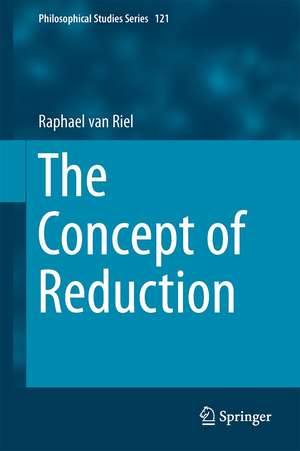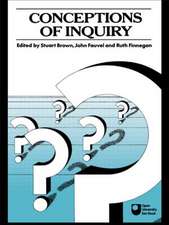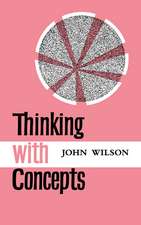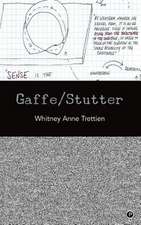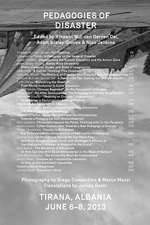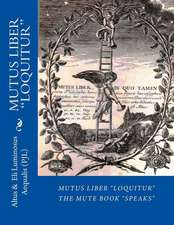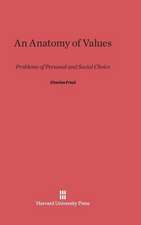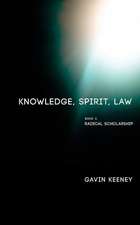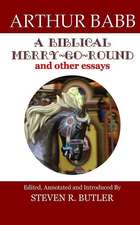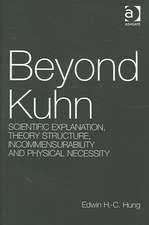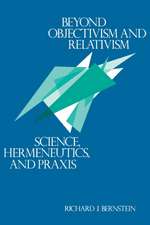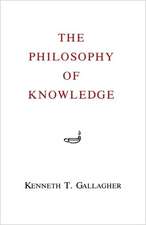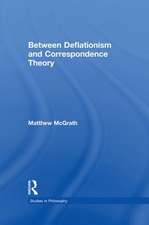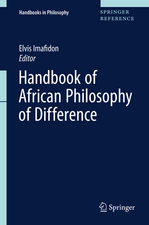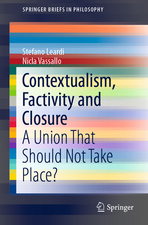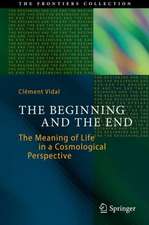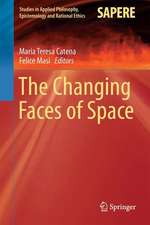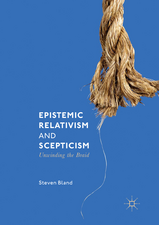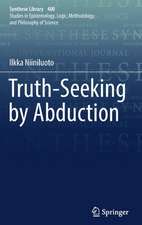The Concept of Reduction: Philosophical Studies Series, cartea 121
Autor Raphael van Rielen Limba Engleză Hardback – 6 mar 2014
The book takes its point of departure in the examination of a puzzle about reduction. To illustrate, the book takes as an example the reduction of water. If water reduces to H2O, then water is identical to H2O – thus we get unity. Unity does not come at the price of elimination – claiming that water reduces to H2O, we do not thereby claim that there is no water. But what about diversity and directionality? Intuitively, there should be a difference between water and H2O, such that we get diversity. This is required for there to be directionality: in a sense, if water reduces to H2O, then H2O is prior to, or more basic than water. At least, if water reduces to H2O, then H2O does not reduce to water. But how can this be, if water is identical to H2O? The book shows that the application of current models of reduction does not solve this puzzle, and proposes a new coherent definition, according to which unity is tied to identity, diversity is descriptive in nature, and directionality is the directionality of explanation.
| Toate formatele și edițiile | Preț | Express |
|---|---|---|
| Paperback (1) | 384.86 lei 6-8 săpt. | |
| Springer International Publishing – 3 sep 2016 | 384.86 lei 6-8 săpt. | |
| Hardback (1) | 392.21 lei 6-8 săpt. | |
| Springer International Publishing – 6 mar 2014 | 392.21 lei 6-8 săpt. |
Din seria Philosophical Studies Series
-
 Preț: 407.78 lei
Preț: 407.78 lei - 15%
 Preț: 644.95 lei
Preț: 644.95 lei - 18%
 Preț: 1120.18 lei
Preț: 1120.18 lei - 18%
 Preț: 1005.43 lei
Preț: 1005.43 lei - 15%
 Preț: 640.06 lei
Preț: 640.06 lei -
 Preț: 381.21 lei
Preț: 381.21 lei -
 Preț: 391.61 lei
Preț: 391.61 lei - 15%
 Preț: 640.88 lei
Preț: 640.88 lei - 15%
 Preț: 639.25 lei
Preț: 639.25 lei - 18%
 Preț: 1221.51 lei
Preț: 1221.51 lei - 18%
 Preț: 947.18 lei
Preț: 947.18 lei - 18%
 Preț: 955.56 lei
Preț: 955.56 lei - 18%
 Preț: 950.96 lei
Preț: 950.96 lei - 15%
 Preț: 645.47 lei
Preț: 645.47 lei - 15%
 Preț: 641.38 lei
Preț: 641.38 lei - 15%
 Preț: 644.82 lei
Preț: 644.82 lei - 18%
 Preț: 950.66 lei
Preț: 950.66 lei -
 Preț: 386.00 lei
Preț: 386.00 lei - 15%
 Preț: 644.82 lei
Preț: 644.82 lei - 15%
 Preț: 642.18 lei
Preț: 642.18 lei - 15%
 Preț: 643.48 lei
Preț: 643.48 lei - 18%
 Preț: 944.99 lei
Preț: 944.99 lei - 15%
 Preț: 638.76 lei
Preț: 638.76 lei - 20%
 Preț: 553.25 lei
Preț: 553.25 lei - 20%
 Preț: 560.30 lei
Preț: 560.30 lei - 18%
 Preț: 951.29 lei
Preț: 951.29 lei - 18%
 Preț: 893.40 lei
Preț: 893.40 lei - 20%
 Preț: 566.75 lei
Preț: 566.75 lei - 18%
 Preț: 951.77 lei
Preț: 951.77 lei
Preț: 392.21 lei
Nou
Puncte Express: 588
Preț estimativ în valută:
75.06€ • 77.54$ • 62.47£
75.06€ • 77.54$ • 62.47£
Carte tipărită la comandă
Livrare economică 26 martie-09 aprilie
Preluare comenzi: 021 569.72.76
Specificații
ISBN-13: 9783319041612
ISBN-10: 3319041614
Pagini: 226
Ilustrații: XII, 226 p. 3 illus.
Dimensiuni: 155 x 235 x 20 mm
Greutate: 0.51 kg
Ediția:2014
Editura: Springer International Publishing
Colecția Springer
Seria Philosophical Studies Series
Locul publicării:Cham, Switzerland
ISBN-10: 3319041614
Pagini: 226
Ilustrații: XII, 226 p. 3 illus.
Dimensiuni: 155 x 235 x 20 mm
Greutate: 0.51 kg
Ediția:2014
Editura: Springer International Publishing
Colecția Springer
Seria Philosophical Studies Series
Locul publicării:Cham, Switzerland
Public țintă
ResearchCuprins
Preface.- Chapter 1. Introduction.- Part 1. The Concept of Reduction—An Explication.- Chapter 2. How to Approach Reduction: Explication and Meta-Science.- Chapter 3. The Puzzle of Reduction.- Chapter 4. Reductive Explanation and Mechanistic Explanation.- Chapter 5. Reductive Explanation.- Part 2. The Explication at Work.- Chapter 6. Reduction in the Philosophy of Mind.- Chapter 7. Conceptions of Reduction in the Philosophy of Science.- Chapter 8. Theory Reduction and Holism.- Chapter 9. Reduction Beyond the Reduction Debate.- Chapter 10. The Reductionist’s Commitment.
Textul de pe ultima copertă
This volume investigates the notion of reduction. Building on the idea that philosophers employ the term ‘reduction’ to reconcile diversity and directionality with unity, without relying on elimination, the book offers a powerful explication of an “ontological”, notion of reduction the extension of which is (primarily) formed by properties, kinds, individuals, or processes. It argues that related notions of reduction, such as theory-reduction and functional reduction, should be defined in terms of this explication. Thereby, the book offers a coherent framework, which sheds light on the history of the various reduction debates in the philosophy of science and in the philosophy of mind, and on related topics such as reduction and unification, the notion of a scientific level, and physicalism.
The book takes its point of departure in the examination of a puzzle about reduction. To illustrate, the book takes as an example the reduction of water. If water reduces to H2O, then water is identical to H2O – thus we get unity. Unity does not come at the price of elimination – claiming that water reduces to H2O, we do not thereby claim that there is no water. But what about diversity and directionality? Intuitively, there should be a difference between water and H2O, such that we get diversity. This is required for there to be directionality: in a sense, if water reduces to H2O, then H2O is prior to, or more basic than water. At least, if water reduces to H2O, then H2O does not reduce to water. But how can this be, if water is identical to H2O? The book shows that the application of current models of reduction does not solve this puzzle, and proposes a new coherent definition, according to which unity is tied to identity, diversity is descriptive in nature, anddirectionality is the directionality of explanation.
The book takes its point of departure in the examination of a puzzle about reduction. To illustrate, the book takes as an example the reduction of water. If water reduces to H2O, then water is identical to H2O – thus we get unity. Unity does not come at the price of elimination – claiming that water reduces to H2O, we do not thereby claim that there is no water. But what about diversity and directionality? Intuitively, there should be a difference between water and H2O, such that we get diversity. This is required for there to be directionality: in a sense, if water reduces to H2O, then H2O is prior to, or more basic than water. At least, if water reduces to H2O, then H2O does not reduce to water. But how can this be, if water is identical to H2O? The book shows that the application of current models of reduction does not solve this puzzle, and proposes a new coherent definition, according to which unity is tied to identity, diversity is descriptive in nature, anddirectionality is the directionality of explanation.
Caracteristici
Explores the history and role of reduction in philosophy of science and philosophy of mind Offers a new, coherent framework within which various notions of reduction can be defined Sheds light on the relation between reductive explanation and neighboring topics, such as mechanistic explanation, unification, levels in science, and metaphysical dependence Includes supplementary material: sn.pub/extras
